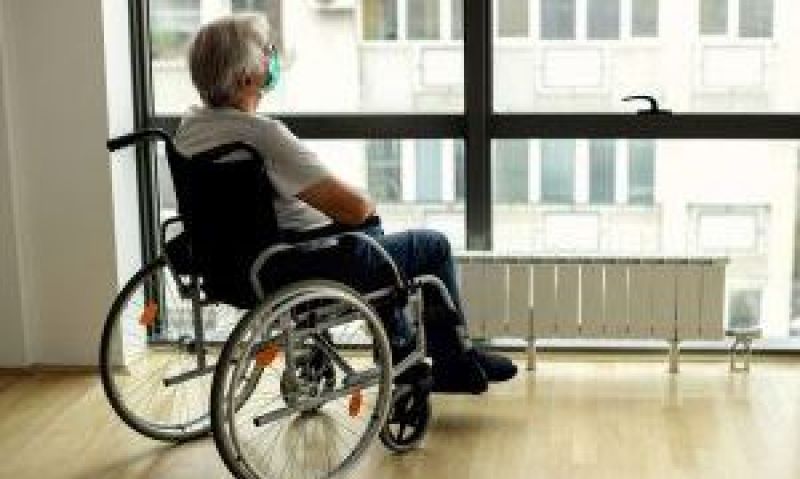
State veterans’ homes are required to report coronavirus data, but not all comply
Most state-run veterans homes publicly shared data about coronavirus cases and deaths for the first time this month, but not all are complying to the new law.
As of Feb. 7, 1,040 residents and 35 employees of state veterans’ homes had died of the virus. Since the start of the pandemic, 8,581 residents and 6,094 staff have tested positive for coronavirus.
However, some homes are withholding information, making it difficult to discern complete fatality and infection rates across the network of homes. According to the VA, there are 19,000 residents of the country’s 158 state homes, but only 123 homes are reporting information about coronavirus infections.
A VA spokeswoman said Tuesday that the department was working with the remaining 35 homes to help them report their data. The department did not share which homes have not reported the information.
The reporting is required by law. Congress passed a bill at the end of 2020 mandating that state veterans’ homes share weekly reports about their coronavirus cases and deaths with the VA and Centers for Disease Control and Prevention. The homes, some of which have experienced deadly outbreaks, were not previously required to share the information with the federal government.
The new law requires the VA to publicly post the information on the department’s website starting Feb. 4. The department began posting the information this month on its coronavirus landing page.
A VA spokeswoman said the agency is working with the National Association for State Veterans Homes and the CDC to enroll all state veterans’ homes into the National Healthcare Safety Network, an infection tracking system.
The VA first held a town hall with the organizations Feb. 2 to explain the new reporting requirements and instruct homes to enroll in the network. The homes were reminded Feb. 9. The VA held another town hall meeting Monday to “walk those homes still encountering barriers through the enrollment process,” the VA spokeswoman said. She did not say what kinds of barriers the homes were facing.
The outbreaks at state homes and the lack of information-sharing during the pandemic has drawn criticism from lawmakers and national veterans’ organizations. Some have criticized the VA for not doing enough.
States are in charge of operating the veterans’ homes, but the federal VA leads their oversight. The facilities undergo yearly inspections by the VA to ensure they meet a list of VA-imposed regulations.
The Government Accountability Office investigated the VA’s oversight of state homes in 2019 and found that in some cases, the department allowed contracted inspectors to ignore deficiencies. At the start of the pandemic last year, the VA had not completed all the recommendations that the GAO made to improve inspections.
Rep. Ed Case, D-Hawaii, questioned VA officials last week about how the department’s role with state homes would change.
“The relationship is one that needs to be continually strengthened,” said Richard Stone, acting undersecretary for health. “We need to make sure inspections are adequate and these inspections … are communicated to the governors’ offices. The governors’ offices deserve to have our concerns reported directly to them.”
In the VA’s official plan for vaccinating patients against the coronavirus, the department wrote that it is not responsible for providing vaccines to state-run veterans’ homes.
If state-run veterans’ homes want help vaccinating residents, they must request assistance through the Federal Emergency Management Agency. The VA could then be called on to provide help under its Fourth Mission to serve as backup for the American medical system.
A VA spokeswoman said Tuesday that no states had requested the VA to administer the vaccines at veterans’ homes. Some residents may have been vaccinated through their regular treatment at the VA, she said.
Members of The American Legion can receive 50 percent discounts on annual subscriptions to the Stars and Stripes digital platform of exclusive military news, topics of interest to veterans, special features, photos and other content, including the daily e-newspaper, job listings and history. American Legion members can subscribe for $19.99 a year by visiting legion.stripes.com and using the coupon code LEGIONSTRONG when filling out the online form.
